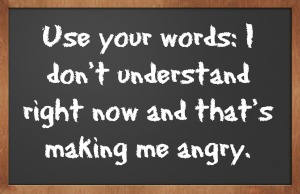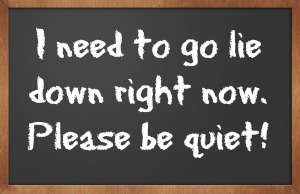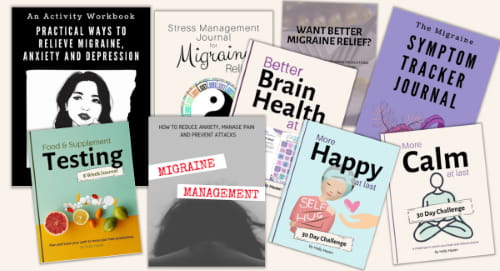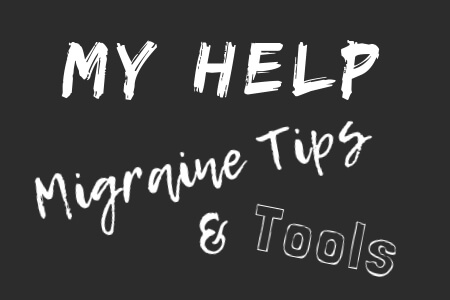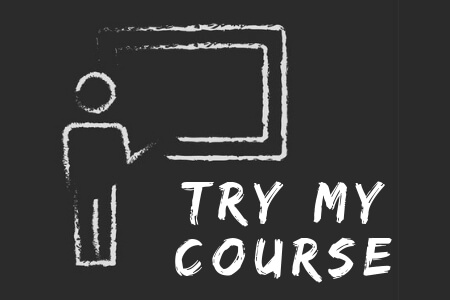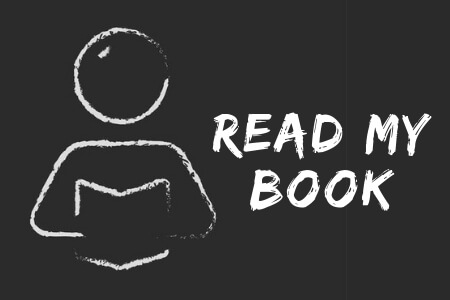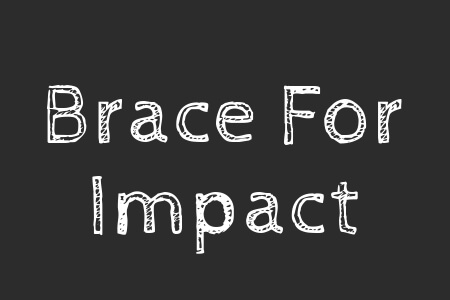- Home
- Migraine Help
- Can Anger Cause Migraines
Can Anger Cause Migraines?
Can anger cause migraines? This is a tricky question, mostly because we often misunderstand the word cause. A migraine is caused from a chain of biological events not by getting angry. An attack is triggered by a stimulus that can be unique to you which could be getting angry. And anger can be a symptom of the prodrome phase of the attack.
In fact, it was one of my earliest warning signals. So, can anger cause a migraine? No not really, but it can trigger a tension headache that can lead to a migraine attack. AND… this is so important… it’s a symptom of the prodrome phase.
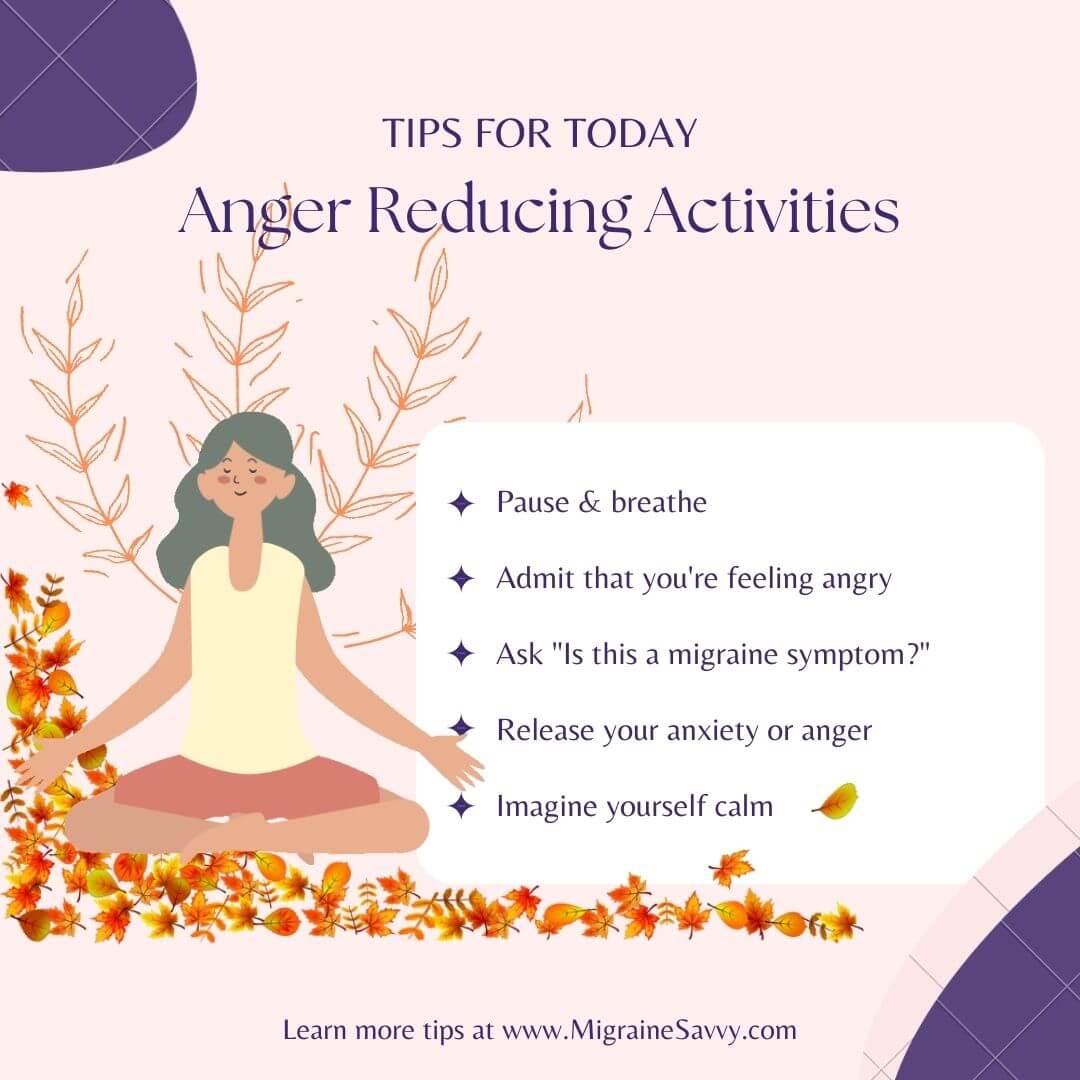 Can anger cause migraines? Here are some great anger reducing tips @migrainesavvy
Can anger cause migraines? Here are some great anger reducing tips @migrainesavvy
Do you get angry before an attack... for no reason? Learning these anger management strategies below can help. Even knowing that this is a symptom in the prodrome phase of your attack can change how, where and when you take your next step.
If you find getting angry can often precede an attack, it's crucial to learn some new skills to cope better with this symptom and not take it out on your loved ones.
Did you know that your adrenaline can also spike before an attack... and feel like panic and anger?
Both anger and irritability are some of the less recognized symptoms of migraine disease that are most often experienced during the prodrome phase.
What is the prodrome phase of migraine?
The prodrome phase is the first of four, some say 5 now, phases that make up an entire migraine attack itself and can serve as an early warning sign of an impending attack.
The prodrome phase can start as early as 24 hours before the onset of a migraine attack. You can read more about that here - The Phases of Migraine.

 Can anger cause migraines? No. But you need to know it can be a trigger and symptom. Read more @migrainesavvy
Can anger cause migraines? No. But you need to know it can be a trigger and symptom. Read more @migrainesavvyCan Anger Cause Migraines?
Here Are 6 Tips from An Expert
Here are 6 tips to help right now from Harriet Goldhor Lerner, Ph.D. from her book The Dance of Anger.
"Jog, meditate, ventilate, bite your tongue, silently count to ten"... take a time out. She also says that “there is no shortage of advice about what you can do with anger in the short run."
Some experts will tell you to get it out of your system as quickly as possible. I like the idea of dancing it out and singing... keeping it positive if I can. But recent studies are proving it only takes 90 seconds for the body to clear a strong emotion, if you let it run its course. 90 seconds! Thats it!
Many people and therapists will offer you different advice. "In the
long run, however", Dr. Lerner says, "it is not what you do or don’t do
with your anger at a particular moment that counts. The important issue
is whether, over time, you can use your anger as an incentive to
achieve greater self-clarity and discover new ways to navigate old
relationships."
Learning anger management techniques can be very beneficial if you become a chronic, long term migraine sufferer.
I think getting angry often accompanies migraines not only from the
adrenaline rush, but the accumulation of situations that occur as a
result of having this frustrating, disabling, misunderstood medical condition.
Severe consequences like job loss, weight gain, depression (suicidal thoughts), not being able to work full time or tend to your children the way you'd like to, just for a few examples, can all take its toll. Having others repeatedly suggest that if you just think more positively about it, or stop drinking coffee, or [insert their solution] you would surely cure your migraines.
It can be a constant battle.
Learning when anger is an early warning signal for a migraine attack and then some good anger management techniques can be a game changer.
~ Holly @migrainesavvy
Tip #1 - The Adrenaline Rush
Both excitement and stress cause the body to react and produce a sudden rush of hormones. Adrenaline (epinephrine) is the hormone and neurotransmitter that is produced to help protect the body from any threat or harm.
The symptoms might look like: increased heart rate, trembling, feeling faint, sweating, chest pain, extreme fear and anxiety, the fight or flight response and it can lead to a sudden panic like migraine headache. The adrenaline level returns to normal after the stress of the threat has passed.
I read somewhere that the body can only sustain a high release of adrenaline for 5 minutes and then it reduces and returns to normal. The body allows enough time to just deal with, or take action in, the stressful situation.
Anger management for migraines during this time in the different migraine phases might be as simple as listening to a meditation tape or doing your own guided imagery meditation from my anger management meditation tool box and staying calm during the 'rush' release period.
Stay calm during the 'rush' release period. If you panic, it might last longer or be more intense.
~ Holly @migrainesavvy
Click here to download and print the PDF for the anger management meditation.
Tip #2 - Use Your Words
Anger is a natural, human emotion.
Everyone gets angry to different degrees at different times. It’s how you respond to it, and how you deal with it that counts.
It took me years to learn and maintain effective anger management for migraines. My family just yelled at each other instead of using their words. Yelling is not the best way to deal with your anger. Also, anger can be your ally and your teacher. It is telling you something important!
It's much more effective to listen to that something - just for yourself first, and then take it to the other person once you have figured it out. By this I mean, as soon as you first notice any angry feelings arising when across from another person - pause, take a deep breath, it's ok to retreat inside (think) for a short time and then validate that you have heard them.
It's helpful to ask, “what did you mean by that” to get more information. This can often help you calm down if it's been a misunderstanding and provides space for you to try and remain calm, let the anger subside, and then you can walk away to process what’s happening. Does that make sense?
So, make sure you express your feelings in words like "that made me feel really angry. I need to go and think for a bit. Can we talk about this later when I calm down?" When you both calm down might be more like it.
Tip #3 - Take A Time Out
If things are too heated, it's a useful anger management for migraines strategy to take a time out.
Remove yourself from the room and allow yourself the space to validate what is really making you angry. It's a simple skill of pausing, breathing and asking yourself "what am I really angry about?"
Retreat and write it all down if that helps. This will validate you and what is really going on under the surface. Things are never what they seem to be at first!
Tip #4 - Verbally Describe Your Pain
Do you ever freeze when a doctor asks you a question? When emotion steps, intellect steps out!
Writing your own verbal descriptions of your migraine pain to be clearer with your doctors is another great tip to add to your anger management for migraines strategy. If you find it hard to describe such extreme pain, wait until you are sliding down into an attack... and jot down what your feelings are right then and there.
Here is my list (feel free to use any of it!):
Physical – throbbing, crushing, stabbing, splitting, squashed eyes. Like being hit in the back of the head with a crowbar.
Physical symptoms – very tired and fatigued all day, nausea, light sensitivity, olfactory hallucinations (smell everything), running nose and watery eye on one side of the head. It is like I have a cold coming on. Confused thinking, blurry vision, and impaired speech. It is difficult to communicate.
Emotional – exhausting, sickening, terrifying, punishing. Fear, anger, anxiety, despair, easily irritated and agitated.
Thoughts – angry and depressed “I have no future at all”... “I will surely die from this pain”.
Experience – unbearable, intense, life threatening, life destroying, soul destroying, spirit breaking.
And always, even if you hate it, use a rating scale out of 10. This gives your doctor a good indication of where you are at.
Tip #5 - Basic Do's and Don'ts of Anger Management
Harriet Goldhor Lerner, Ph.D. suggests starting your anger management techniques with less intense relationships first, for practice.
Here are just a few of the basic do’s and don’ts to keep in mind when you are feeling angry:
1. Do speak up when an issue is important to you. Letting things
go can be considered a sign of maturity, however, it is a mistake not
to stand up for what is important to you personally.
2. Don’t strike while the iron is hot. If your family patterning supports that a good fight will clear the air, then venting might work. But if your intention is to change an embedded pattern, the worst time to speak up is when you become angry.
If you feel your anger ‘fire’ rising, try using a pre-planned buzz phrase – something like “I need a little time to sort through my thoughts. Let’s talk again later when I'm clearer.” It's necessary to suggest another time so it does not feel like emotional cut off or the silent treatment to your partner.
3. Do take time out to think about the problem and to clarify your position. Think first! Ask yourself first “what about this situation is making me so angry? What is the real issue here? What outcome or result do I want? What specifically do I want to change? What are my boundaries – what are the things I will and will not do?”
4. Do not strike below the belt. Blaming, interpreting, diagnosing, labeling, analyzing, preaching, lecturing, moralizing, ordering, warning, interrogating, ridiculing, all put the other person down. Do not resort to these behaviors. STOP your mind and stop your mouth - be firm.
5. Do speak in “I” statements. Using “I” to start each sentence will help you to own what you are saying. I fear, I feel, I want. Steer away from I think you … stick to what you are feeling. When you do X, I feel Y is acceptable. Don’t attack.
6. Don’t make vague requests of your partner. “I want you to be more sensitive to my needs”. It is much better to be specific, for example “What I need right now is for you to just listen. I realize you want to help, but I really don’t want advice right now” is actually better than being vague. Be clear about what you want.
7. Do try to appreciate the fact that everyone is really quite different. No matter what happens, no one will see things the way you do. Some fused family structures may see the world as the same, but as we move away from that structure, we experience a huge amount of difference. So, if you are too involved in fighting for your “truth”, to be right, you may be missing the point.
8. Do recognize that each person is responsible for this or her own behavior. What I mean here is – don’t go through your mom to get to your dad if you need to clear up a disagreement.
9. Don’t bring up third parties. Don’t use what other people say about your relationship. My mother agrees with me, that you don’t listen to me. Instead try – “When you walk away, it feels like you shut me out, and I feel like you don’t want to listen to me.”
10. Don’t participate in intellectual arguments that go nowhere. This is where you try to convince others that you, indeed, are right. I call this lecture mode, and I know this one well. Instead try “Well, it may sound strange to you, but this is how I feel” or something like “I hear that you disagree, and I understand that, but I guess we see it differently” and leave it at that.
If you have a really big fight, and feel emotionally cut off, Dr. Lerner suggests
sending a card or little note to express your feelings or just say you still care. It can take courage
and bravery to stay in touch when you are hurt. But let the card serve
as one tool in your anger management for migraines toolbox.
Tip #6 - Options for Creating New Boundaries
Remember to pause, breathe, and take time to think about your options. Hang in there, this is a long post, but I want you to have lots of things to use in your anger management tool kit.
Dr. John Eaton, in his book Chronic Fatigue Syndrome (CFS) uses the
Reverse Therapy Approach®.
Anger management for migraine relief includes forming stronger boundaries around your own values.
He identifies the “Bodymind” and “Headmind” that both work to communicate with you. The bodymind however, communicates using “symptoms as ‘codes’ to flag up that a difficulty has returned, and you need to learn new ways of handling the experience.”
I personally have found Dr. Eaton’s work and his Reverse Therapy Approach® to be one of the single most effective forms of working with these horrific migraines and resulting emotional turmoil. The other gentle and effective approach is Focusing that was pioneered by Eugene Gendlin. I use both methods, but more on that later.
Dr. Eaton discovered this on his own personal journey, and I was lucky enough to find a therapist here who uses his model. Migraines commonly occur with CFS and are considered only one of the many symptoms.
This is what he says about anger – I love it – “Anger. In normal conditions this tells us that some other person has deliberately violated our rights. Bodymind wishes us to restore the situation by speaking up for ourselves and making it clear that the violation should not be repeated."
"Alternatively, the anger may follow a longer series of frustrations in which we allowed others to take liberties. Again, what is called for is a restoration of our rights. In abnormal conditions we may be holding a banana that dictates that other people should always do what we want and that they must be ‘evil’ if they don’t. In this case it would be best to become less dependent on other people and learn to do more for ourselves.”
“If Headmind blocks action because it has been programmed not to ‘make a fuss’ then Bodymind again turns up the emotion and we may be left for months – or even years – with a seething, inner resentment, continually replaying the injustice over and over in Headmind.”
Dr. Eaton’s method goes something like this (this is just an example – please click on his website for additional details).
Along with a trained therapist, you would learn to ‘tune in’ to your body using a relaxation technique and you would develop a symptom message to work with. The symptom message is spoken out loud. Initially, you might be instructed to tune in three times a day and recite your message.
Dr. Eaton suggests:
- Stop what you are doing
- Go to a quiet place
- Get 'into the body' (bring awareness inside)
- Gently focus on the symptoms
- Read the message
- Take action immediately in a way that satisfies the message
An example of one of my cards was: "my symptoms are here to remind me to stop being a peacemaker and start getting clear and express what I want, respectfully." I have a step-by-step example in my eBook Migraine Management for making major life changes like moving house and changing jobs.
Reverse Therapy includes balance, variety and fun which fits perfectly in your anger management for migraines strategy. I believe that if you are
happy in life, it is much easier to work on your angry patterns of
behavior and potentially reduce your triggers by learning different techniques to
add to your anger management for migraines toolbox.
Can anger cause migraines? One last thing...
To the best of your ability, monitor where anger shows up before an attack hits.
Learning long term coping skills around anger management that will also help with migraine relief can be essential for peacefully surviving this lifelong condition.
You are not taught these skills in school, and very few of us are born with these skills... asking for help in dealing with the chronic pain of migraines is OK!
As a qualified counsellor, I work with many clients struggling to cope. That's why I wrote my eBook Migraine Management and the migraine pain management course, so you can learn skills you need now in the comfort of your own home.
There is a whole module on immediate self-help. And it's free to enroll. Module 1 is FREE! And you can scroll back up to get the downloadable PDF meditation.
Until next time, be well and be pain free,
Ready to take the next step?
Choose the next step that fits where you are right now.
MY PROFESSIONAL HELP & SUPPORT Related Articles
Anger Management for Migraines References:
1. Goldhor Lerner, H., PhD. (1985) The Dance of Anger: A Woman’s Guide to Changing the Patterns of Intimate Relationships Harper & Row Publishers, Inc: NY. (p.189).
2. Eaton, J. Ph.D. (2006) M.E., Chronic Fatigue Syndrome and Fibromyalgia: The Reverse Therapy Approach®. Authors Online Ltd: Hertford, England UK. (p.11, p. 39).
Updated Feb. 2026

